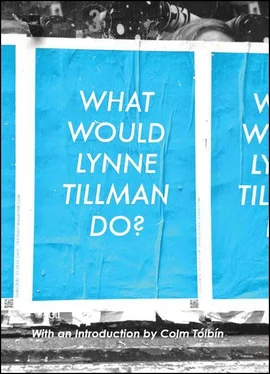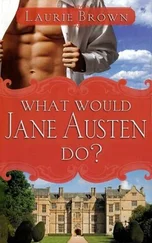After visiting Bowles, I began my letters “Dear Paul B.” I sent him and Buffie copies of the photographs we’d taken, and he wrote a postcard thanking me. It ended, “Your visit to Tangier was very short, unfortunately. Another time, perhaps?” I haven’t returned, but I did fly to Atlanta in 1995 to visit him when he came to the States for an operation. It was his first visit since 1968. I also saw him briefly at Lincoln Center for a concert of his music. These last years he’s been ill and doesn’t answer most letters. I treasure the ones I have.
— August 1999
Paul Bowles died on November 18, 1999, at the age of 88 .
A young American was intent on becoming a writer, and in the spirit of the Lost Generation and earlier American writers, believed that living in Europe, or out of America, as expatriate or alien, was what she needed to free herself or lose herself, and write.
In 1972, I was living in Amsterdam, and decided to edit an anthology of American writers abroad. Paul Bowles reigned as the preeminent American abroad. I told my Dutch publisher that his presence in the book was essential, and assured him that Bowles would definitely be in it. All bravado. I was a complete unknown. Anxiously, I wrote a letter to Paul Bowles, requesting his important participation. Shockingly fast, he wrote back, Yes.
I can’t remember what Bowles first sent me. But soon the book’s publication was delayed, and whatever piece it was, he had given it to someone else. I quickly and humbly asked for another piece; he amiably sent one along. I really didn’t know what I was demanding of such a distinguished, sought-after writer. I knew nothing, I was a kid, and all my ideas about being an editor came from reading literary histories and writers’ biographies. I had requested unpublished material from everyone. The long delays continued, and every piece Bowles sent me was eventually published somewhere else.
By the third or fourth delay, and subsequent go-rounds with Bowles and a few other writers, I had returned to America, a prodigal daughter home, because, for one thing, hearing English spoken by Dutch and English people didn’t foster my American writing. By now, the correspondence between Bowles and me had grown friendly: we wrote anecdotes to each other, even reported a few dreams, and discussed much more than the putative anthology.
After the first publisher reneged — the novelty division was dissolved — a second publisher came forward to save the book, a friend with a small Dutch press who promised to bring the anthology out, fast. He didn’t. I’m not sure how much time passed, but once again I needed to ask Bowles for new writing. Now he had no unpublished work at all, nothing to give; he was very sorry. Desperate, I wrote: Don’t you have anything? I don’t care what it is. Bowles kindly mailed a few poems he’d written in the early 1930s, noting that they weren’t very good, but I could use them if I wanted. He didn’t have anything else. Again, he was very sorry.
It never occurred to me that he might have been, with excellent reason, courteously bailing out of my long-sinking enterprise. But I was young, naive, hopeful, and these traits, mixed with others, allowed me not only to ignore that possibility but also to agree with his negative assessment of his poems. Yes, they’re not very good, I wrote him. Of course I’ll publish them anyway. You must be in the anthology. But, I pleaded, don’t you have anything else? How about letters you wrote home from Europe?
Not long after, an airmail letter arrived, on onionskin as ever, but thicker than the one page he usually sent. He, or a helper, had typed copies of two letters he had written his mother on his very first trip to Europe. He had traveled there with composer Aaron Copland; Copland had been his music teacher, then a close friend. In one letter Bowles tells the hilarious tale of their sailing to Tangier. The second was written after he and Copland had settled in Tangier, about their travails with their piano, and also about Gertrude Stein and Alice B. Toklas, who were their friends. Use the letters if you want, Bowles wrote. I read them over and over, delighted with each line, and also by glimpsing his intimate and sympathetic relationship with his mother; I knew he despised his father. (In his autobiography, Bowles admitted to wanting to kill him.) Now it was worth it, every delay, everything — the letters were jewels.
Over those years, the anthology had gone through many transformations. Mostly I added people: it was hard for me to say no to friends, even those who weren’t writers. When the second Dutch publisher stopped answering my letters, I finally gave up, though the book had been designed, typeset, and was actually on boards. I knew it would never be published. Curiously, I took this failure in stride, seven or eight years of work and waiting, making promises and breaking them. By then I was doing other things, living in New York and writing. Maybe more significant, the anthology had come to feel unnecessary to me, a leftover from an existence I no longer had or wanted. I’d done it, and was done with my romance of the American abroad — along with the rest of the world. Being in Europe had helped me unlearn some of what I’d been taught or unconsciously believed. Any writer knows that what’s left out is as essential, if not more so, than what’s there. Unlearning works that way. I unlearned the model of being an editor like Ezra Pound with T.S. Eliot, the unconscious belief that America was the center of the world, and that honesty meant saying what I thought and always being direct. (The Dutch and the English, former competitors for world dominance, taught me the wisdom of waiting as well as withholding.) As to new lessons: I learned I could be miserable anywhere in the world. I learned I really was an American.
Bowles and I continued corresponding, hardly ever mentioning the ill-fated anthology. He had suffered much worse fates than the ups and downs of publication, of course, specifically, the slow, sad decline of Jane Bowles and her death in 1972. In some ways I think he was forever amused by something invisible buzzing around him, and that something kept him going. Maybe he was amused just to be alive.
I wanted to meet him and visited Tangier in 1987. There was another motive: I’d written a script and hoped to direct a film of Jane Bowles’ novel, Two Serious Ladies , but even if there wasn’t that desire and wish for his blessing, I would have traveled to Morocco to meet him one day.
Meeting him wasn’t anticlimactic, because I’d heard one couldn’t really know him. I don’t think I had unusual expectations, but I felt anxious, so maybe I did. In a way I believed I knew him from his letters, a writer writing; and in the flesh, he was the person who wrote those funny, smart, ironic letters. He spoke like his letters. His apartment was kept dark, shades drawn; Mohammed Mrabet stood in the shadows, appearing only to serve tea, and Paul’s writing could be exquisitely cruel and dark. But he had a sunny smile and liked to tell stories and laugh.
I saw Bowles twice more. First, in Atlanta, Georgia, in the spring of 1994, when he traveled there for a heart operation. A number of us, devotees, acolytes, friends, acquaintances, writers, artists — I didn’t know what scale he weighed me on or how to measure myself — flew down for a party in his honor. I shared a hotel room with Cherie Nutting, a photographer and the manager of her Moroccan husband’s joujouka band. (They later divorced but she still manages the band.) She and Paul were close, like father and daughter, I imagined; they spent a lot of time together in Tangier.
Thirty or forty people gathered in Atlanta at the home of Virginia Spencer Carr. Carr was writing Bowles’ biography (it was published in 2004), and had also arranged for Paul’s heart operation. The party was on a Saturday night, some days before it. All night Paul sat in a comfortable club chair, and people came by to greet and talk to him. They sat on the floor, pulled up a chair, or stood above him. He seemed tired and fragile, but he was gracious and pleasant to everyone, looking at us from under hooded eyes. He was probably overwhelmed by the fuss, with these people he knew well, or barely, around him all at once. The last time he’d been to the States, he told me, was 1968.
Читать дальше












